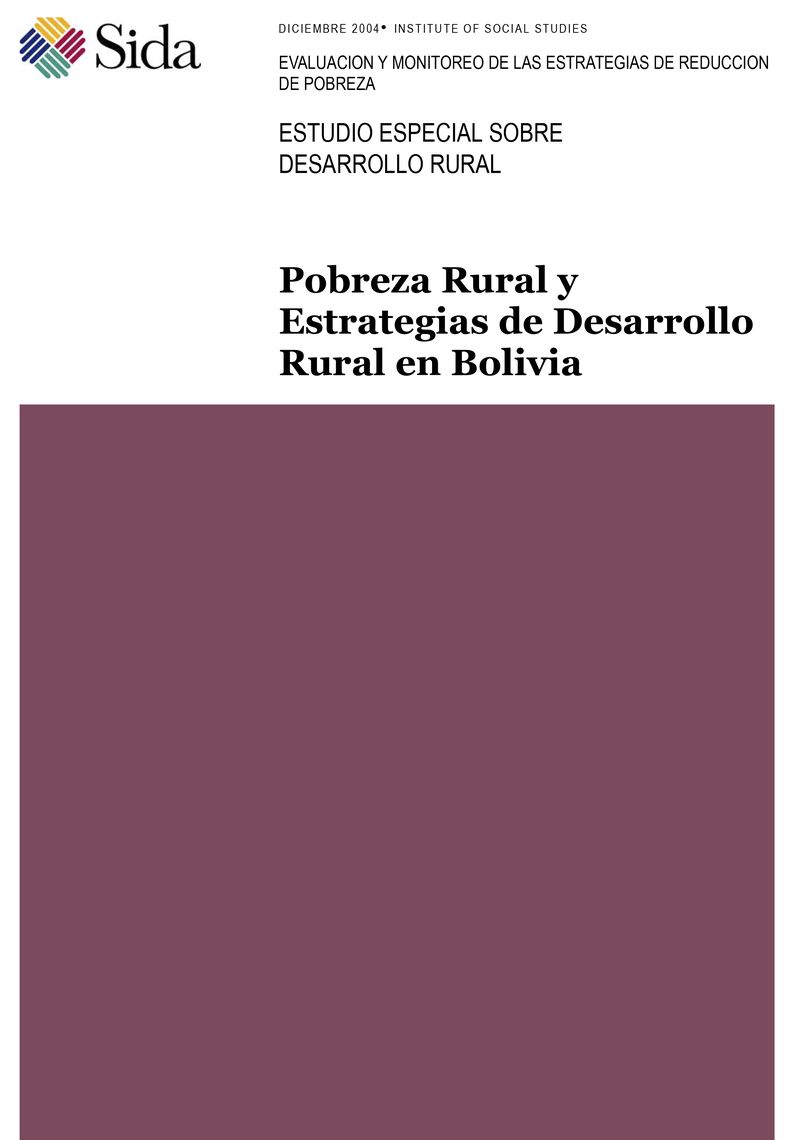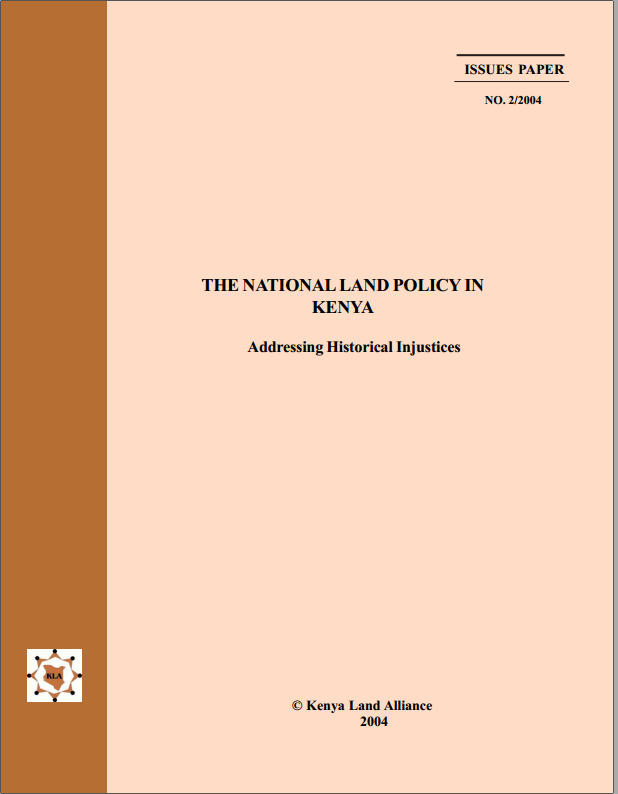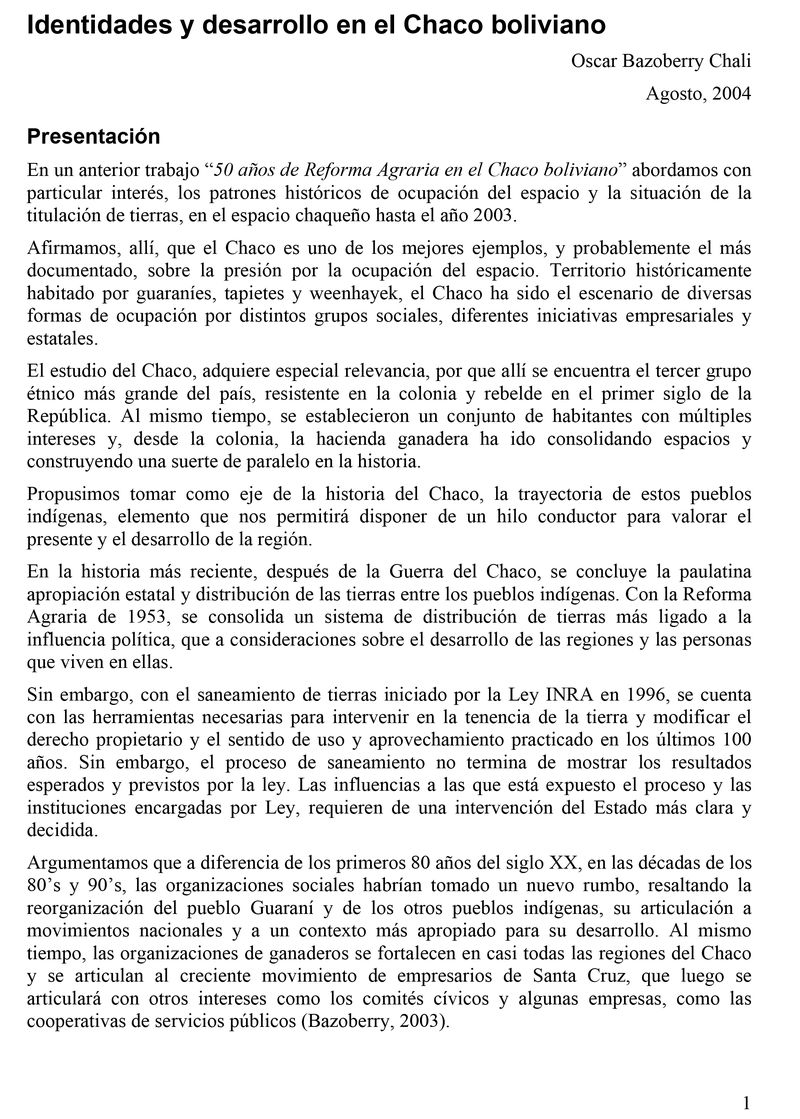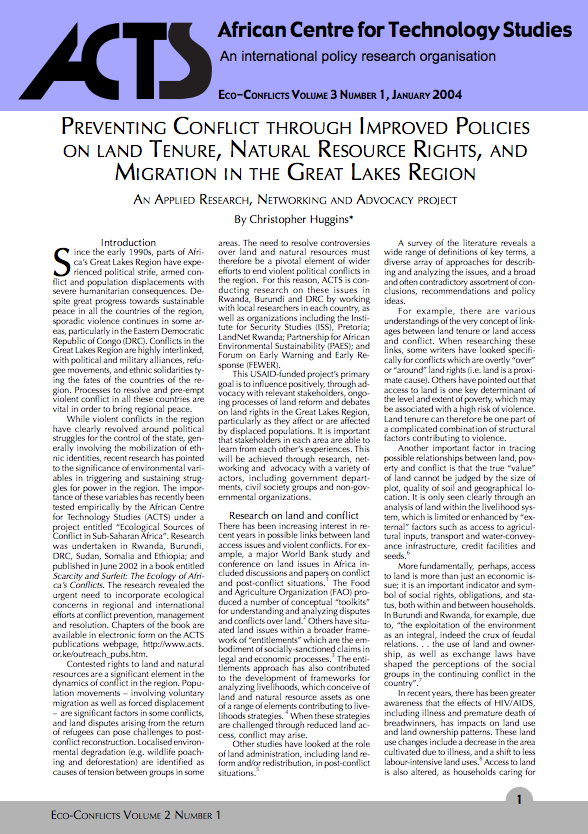Pobreza Rural y Estrategias de Desarrollo Rural en Bolivia
En este estudio se analizan las políticas públicas para la reducción de la pobreza rural en Bolivia. Se examina en particular la Estrategia Nacional de Desarrollo Agropecuario y Rural (ENDAR) que define las acciones centrales del gobierno boliviano en relación al sector rural, incluyendo medidas para la superación de la pobreza rural. Se reconocen los avances pero se resaltan especialmente las limitaciones de la ENDAR para impulsar las capacidades productivas de los productores campesinos y para aliviar la pobreza rural.
Oxfam and Land in Post-Conflict Situations in Africa: Examples from Zimbabwe, Mozambique, South Africa, Rwanda and Angola
Presentation of 5 brief case studies of what Oxfam actually did with regards land in post-conflict situations in Africa, in Zimbabwe, Mozambique, South Africa, Rwanda and Angola, concluding with the common themes, conclusions and lessons that emerged from the case studies. Also includes a critique of the role of USAID.
The National Land Policy in Kenya Addressing Historical Injustices
The Historical Injustices Issues Paper seeks to present the various historical land claims issues and perspective related to them and consequently proffer policy statements for their redress.
Identidades y desarrollo en el Chaco boliviano
El estudio del Chaco, adquiere especial relevancia, por que allí se encuentra el tercer grupo étnico más grande del país, resistente en la colonia y rebelde en el primer siglo de la República. Al mismo tiempo, se establecieron un conjunto de habitantes con múltiples intereses y, desde la colonia, la hacienda ganadera ha ido consolidando espacios y construyendo una suerte de paralelo en la historia.
Struggling with Land Reform Issues in Eastern Africa Today
An independent newsletter providing details of current developments in land reform and land conflicts in the Horn, East and Central Africa. Covers Burundi, Eastern DRC, Eritrea, Ethiopia, Kenya, Rwanda, Somalia, Sudan (including origins of the Darfur crisis), Tanzania and Uganda. As in Southern Africa, land is a highly contested and contentious issue right across the region. A short case study in Apac, Northern Uganda, symbolises the dilemmas of land reforms across the continent in an era of privatisation. Some are very clearly gaining at the expense of others.
At War's End Building Peace after Civil Conflict
All fourteen major peacebuilding missions launched between 1989 and 1999 shared a common strategy for consolidating peace after internal conflicts: immediate democratization and marketization. Transforming war-shattered states into market democracies is basically sound, but pushing this process too quickly can have damaging and destabilizing effects. The process of liberalization is inherently tumultuous, and can undermine the prospects for stable peace.
Preventing Conflict through Improved Policies on Land Tenure, Natural Resource Rights, and Migration in the Great Lakes Region
Since the early 1990s, parts of Afri-ca’s Great Lakes Region have expe-rienced political strife, armed con-flict and population displacements withsevere humanitarian consequences. De-spite great progress towards sustainablepeace in all the countries of the region,sporadic violence continues in some ar-eas, particularly in the Eastern DemocraticRepublic of Congo (DRC). Conflicts in theGreat Lakes Region are highly interlinked,with political and military alliances, refu-gee movements, and ethnic solidarities ty-ing the fates of the countries of the re-gion.
Agrarian transformation among tribals: A synthesis of six case studies prepared under the central India initiative of NMSWDF, IWMI-Tata and PRADAN
Development of effective water-management institutions, final report, vol.IV, appendix I: basin profiles
Regional study implemented by IWMI with financial support from the Asian Development Bank (RETA 5812)
Poverty and Changing Livelihoods of Migrant Maasai Pastoralists in Morogoro and Kilosa Districts, Tanzania
This study documents the plight of the Maasai pastoralists who have moved to Morogoro and Kilosa districts as a result of the recent socio-economic developments and environmental changes in Maasailand. The objective of this study was to analyse how the Maasai migrants have adapted themselves to the new ecological conditions and the impact of such adaptations on their livelihoods.








